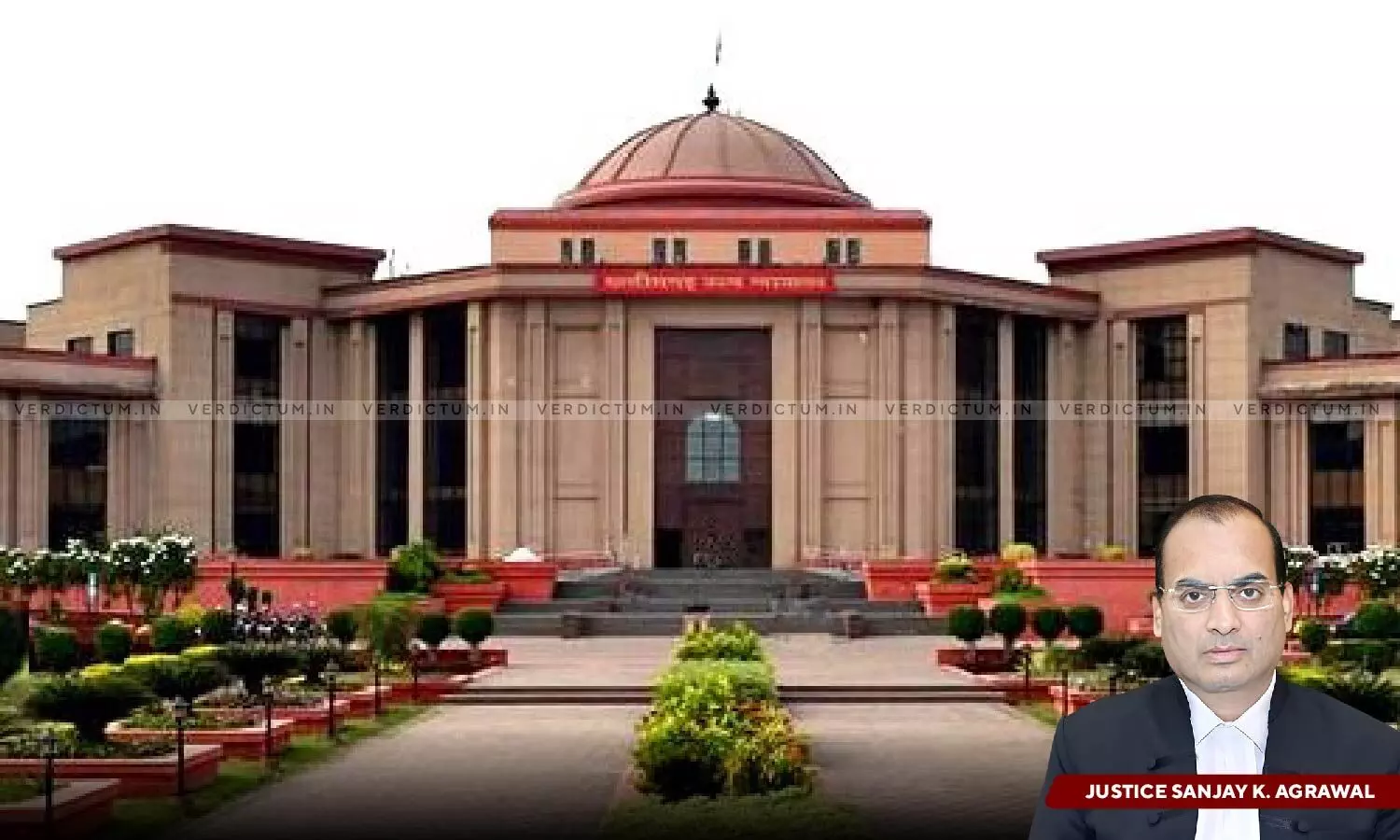
Criminal Appeal Cannot Be Held To Be Abated On Death Of Appellant Where Sentence Involves Both Jail And Fine: Chhattisgarh HC
 |
|The Chhattisgarh High Court has reiterated that a criminal appeal cannot be held to be abated on the death of the appellant where the sentence involves both imprisonment and fine.
The Court was hearing a petition under Section 482 (Saving of inherent powers of High Court) read with Section 394 (Abatement of appeals) of the Code of Criminal Procedure, 1973 by the legal representative of a deceased person seeking the recall of an Order passed in a Criminal Appeal by which the appeal was held to be abated on account of the death of the appellant.
The question before the Court was whether an appeal against a Judgment of conviction involving both imprisonment and fine, could be held to be abated under Section 394 of the CrPC on account of the appellant's death during the pendency of the appeal. Section 394 allows near relatives to apply within 30 days to the Court to continue the appeal and if leave if granted, the appeal is not abated.
A Single-Judge Bench of Justice Sanjay S. Agrawal, after noting that the deceased appellant was awarded a fine in addition to a jail sentence, said, "Therefore, in view of the mandate of sub-section (2) of Section 394 of Cr.P.C., the appeal cannot be held to be abated, if it is preferred against a sentence of fine either singularly or in conjunction with a sentence of imprisonment as it would be an appeal from a sentence of fine within the meaning of this provision."
Advocate Pawan Shrivastava appeared for the Petitioner, Government Advocate Ratan Pusty appeared for the State of Chhattisgarh and Advocate Adil Minhaj appeared as an Amicus Curiae.
Section 394(2) of the CrPC provides that all appeals, other than those by the state government's appeal aggrieved with inadequacy of sentence or acquittal, shall finally abate on the death of the appellant "except an appeal from a sentence of fine".
The proviso to Section 394(2) states, "Provided that where the appeal is against a conviction and sentence of death or of imprisonment, and the appellant dies during the pendency of the appeal, any of his near relatives may, within thirty days of the death of the appellant, apply to the Appellate Court for leave to continue the appeal; and if leave is granted, the appeal shall not abate."
"Meaning thereby, the appeal preferred other than Sections 377 or 378 of Cr.P.C., would not be abated, if it is preferred against a sentence of fine." the Court observed.
On the exception for sentence of fine in Section 394 of the CrPC, the Supreme Court in Harnam Singh V. The State of Himachal Pradesh (1975) stated, "An appeal from a sentence of fine is excepted from the all-pervasive rule of abatement of criminal appeals for the reason that the fine constitutes a liability on the estate of the deceased and the legal representatives on whom the estate devolves are entitled to ward off that liability."
In Harnam Singh, the Court was interpreting Section 431 of the Code of Criminal Procedure, 1898 a provision equivalent to the current Section 394 of the CrPC. The Court concluded, "If by the judgment under appeal a sentence of fine is imposed either singularly or in conjunction with a sentence of imprisonment, the appeal against conviction would be an appeal from a sentence of fine within the meaning of section 431. All that is necessary is that a sentence of fine should have been imposed on the accused and the appeal filed by him should involve the consideration of the validity of that sentence."
Citing this and other precedents, the Court, in the present case, said, "In view of the principles laid down in the above-referred matters, it is, thus, evident that if a person is convicted and has been awarded not only the jail sentence, but has been awarded the fine amount as well, then, in the said eventuality, the appeal cannot be held to be abated."
In the present case, the deceased appellant was convicted under Section 376 (Rape) of the Indian Penal Code, 1860 and sentenced to 7 years rigorous imprisonment and a fine of ₹5,000. He then filed a Criminal Appeal, during the pendency of which he died. The counsel appearing for him furnished the appellant's death certificate, based on which the Court abated the appeal.
On the abatement of the appeal, the High Court said, "A bare perusal of the said order would show that no judicial determination or decision of a Court was made therein as it was abated merely on the basis of said information on account of death of the sole appellant Chandramani Naik."
The Court recalled the Order, restored the appeal to its original number and allowed the legal representative of the deceased appellant to be substituted in his place.
Cause Title: Chandramani Naik Dead Through Proposed Legal heirs v. State Of Chhattisgarh [2024:CGHC:49346]
Click here to read/download the Judgment